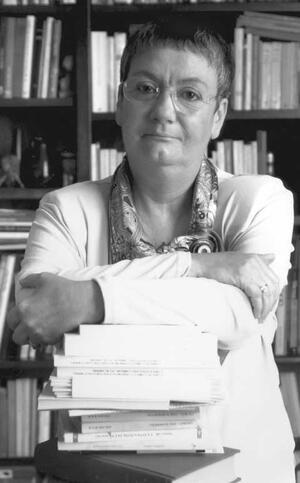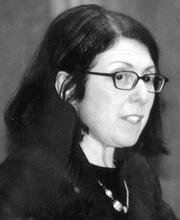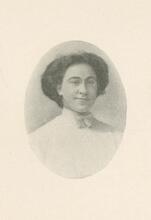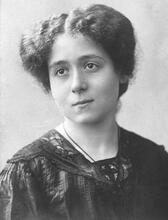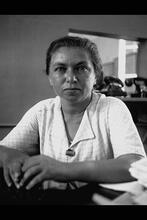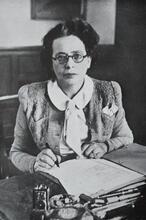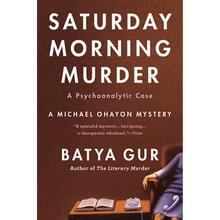Clara Sereni
Clara Sereni was born in Rome from a family with a history of political commitment: her mother was daughter to Russian revolutionaries; her Jewish father was a leader of the anti-fascist movement and the Communist Party; her uncle, Enzo Sereni, was one of the first Zionists from Italy; and Enzo’s wife Ada was a leader of the illegal immigration of Italian Jews to Palestine during fascism. The legacy of her family roots shaped both Sereni’s activist life and her writing, in which history and ethics remain central but are imbued with her female subjectivity, for example in her famous experimental novel Casalinghitudine and her masterpiece Il gioco dei regni, which retrace the intricate private story of her family’s past and portray her own. Similarly, Sereni’s other narratives offer reflections on identity, gender, and all kinds of diversity, while unfolding private and political memories.
When Clara Sereni was asked why she wrote, she replied: “I write to give order to my own world, to establish a precise point; writing represents for me a moment of balance and a focus on reality through pathways which cannot be practiced with other tools. These paths belong to the structure of the literary discourse, to that grid that guides them in a layout, which is at the same time logical and emotional and reveals previously unknown perspectives” (Conversazione con Clara Sereni: Donne, Scrittura e Politica, 1996).
Writing was for Sereni a process better understood on its own terms as the unfolding of memory in the crevices of the present. Indeed, literature was for her the ideal space to enrich one’s experience of both the everyday and the past. In all her literary work she mixed the personal and the collective into a relationship with history and its cunning passages. In her work, history was imbued with personal experience, and she did not reduce historical facts to black and white representations. As can be seen in Casalinghitudine (Keeping House, 1987) and Il gioco dei regni (The Game of the Kingdom, 1993), her writing allowed for nuanced representation of subjectivities, giving space for dreams, utopias, contradictions, and courage within the constraints of private space (such as the home) and public spaces and institutions (such as political parties, public office, and the like).
Family and Work for Disability Rights
Clara Sereni was born in Rome on August 28, 1946, and died in Zürich on July 25, 2018. She was the daughter of Emilio Sereni (1907–1977), a historian and parliamentarian born in Rome, who twice served as a minister in the Italian government. In 1928 he married Xenia (née Silberberg), an author and translator (b. Bern, Switzerland, 1905, d. 1951). Clara had two sisters—Lea (1929–2003) and Marina (b. 1936)—and two half-sisters, Anna (b. 1957) and Marta (b. 1963). In 1978 Sereni married the film writer Stefano Rulli (b. 1949). Their son, Matteo, was born in the same year.
In 1991, Sereni moved to Perugia, where she served as Deputy Mayor from 1995 to 1997. Alongside her political role, in 1998 she founded La città del sole (The City of the Sun) a non-profit organization committed to find working projects and jobs for people affected by mental and psychiatric disabilities. She was the active president of the foundation until 2009. Her involvement in social policies and the underserved matured through the years and is reflected in many of her writings. Indeed, Sereni is the author of several collections of short stories—Manicomio Primavera (Spring Asylum, 1989), Eppure (And Yet, 1995)—as well as books of social and political commentary on contemporary Italy, such as Taccuino di un ultimista (Notebook of a Meek Woman, 1998), making her a pioneer writer in Italian literature and the field of disability. Sereni’s attempt to give voice and visibility to marginal personae is further developed in the three collected volumes she edited, Mi riguarda (I Care, 1994), Si può! (One Can, 1996), and Amore caro. A filo doppio con persone fragili (My Love. Hand in Hand with Fragile People, 2009), which gather famous Italian writers’ and journalists’s narratives of their personal experience as parents of children with disabilities.
Together with her son Matteo and her husband, Clara Sereni was also the protagonist of Un silenzio particolare (A Special Silence, 2004), a David di Donatello award-winning documentary directed by Stefano Rulli. The work was initially intended to advertise the Umbrian country house of La città del sole that welcomes special needs families for social tourism and events, but it became an intimate cinematic representation of Sereni’s family and Clara and Stefano’s experience as parents of a child suffering from mental illness.
Literary Career: Political Themes
Sereni’s literary career began with the appearance of Sigma Epsilon (1974). In the autobiographical mode that would characterize almost all of her literary production, she narrates her years of political commitment following the 1968 student disturbances. Even in her first book, she expressed her distaste for politics seen as a profession detached from the real needs and feelings of the people politicians are supposed to represent. Sereni’s first work also gives voice to the language of women. In Sigma Epsilon, for example, the female narrator recounts her fascination with one of the leading figures in the Italian leftist movement, with whom she has a love affair while working as his political aide. In the book she records her alienation as a woman caught in a power struggle in which she has only a subaltern’s role. In this context, her most faithful companions become the two machines with which she works daily to translate the messages of the leader which, in her view, have become technical, repetitive, and void of any creativity. The two machines in question are “the cyclostyle and the typewriter,” which are now obsolete but in the early 1970s signified political activism. In Sereni’s words, they were “real tools of condemnation of the marginalization of those who are destined to a subaltern position. This also goes for leftist organizations, where there exists a division of labor still linked to sexual discrimination, according to which men are the leaders and women are their secretaries” (Sigma Epsilon, 1974).
Sereni’s relationship to politics, and especially to political commitment, was a complex and ever-present characteristic of her writing. It underlay her elaboration of ideas and projects, which were developed in her works and for which she then attempted to find viability through her public role as an intellectual. In her view, intellectuals have an important task in contemporary society. They cannot limit themselves to watching the world from a window without trying to change the status quo. Sereni thought that what was missing in contemporary intellectuals was the “ability to build a new utopia” that would provide the thrust to create a future model of society and political practice that would no longer be based on the model of traditional political parties.
An Ethics of Literary Discourse and Practices
Another theme recurrent in Sereni’s writing was her striving to establish an ethics of literary discourse and practices. Thus it became inevitable that she dug into her family’s past, which included both communism and Zionism. Her father, Emilio Sereni, was one of the leading figures in the Italian antifascist movement and in the communist party. Her uncle Enzo (1905–1944), who lived in Palestine beginning in 1927, was parachuted into northern Italy in May 1944 to join the partisans and help rescue Jewish survivors. He was captured by the Germans, interned in Dachau, and executed in November 1944. His wife, Ada Sereni, became a central figure in the organization of “illegal” immigration to Palestine through Italy.
Sereni beautifully and deeply explored the intricacies of her family past in the novel Casalinghitudine (1987) and then transformed into a choral epic in her historical novel Il gioco dei regni (1993). In using the terms “novel” and “historical novel,” one must be cautious or use them with a pinch of salt, since Sereni’s writing situates itself at the borderline of these two well-established literary genres,. Sereni’s writing constantly slips from one genre to another by way of her language and her recourse to archival sources, especially in Il gioco dei regni. The sharp and sophisticated writing style of her hybrid narratives has its roots in her translations of French literary texts by Balzac, Stendhal, and Madame de La Fayette completed in the early 1980s, before Casalinghitudine was published. In particular, Sereni’s work on Madamde de La Fayette’s Zaïde influenced both her understanding of the power of words and her concise style that mirrors that of the female French author for its “plain, clear, non redundant … clinical and scientific” (Zaïde, 9) form.
Defining Women’s Language and Writing
Casalinghitudine is testimony to Sereni’s striving to define women’s language and writing, which characterizes her work as a whole. In Casalinghitudine, domestic space and the time of food preparation with its various rituals represent the ideal location of memory. The house has always been associated with women and domesticity—a closed, private space that deprives them of any active participation in public life. But for Sereni, the house and the taste of food create the background to a transformation from being to becoming, which is achieved in the process of writing and in the elaboration of her language and literary form. The house is a dwelling and network of emotions that hides the mystery of the past in a forgotten corner or in an object, such as the teddy bear Miska in Il gioco dei regni, who seems to hold “many legacies in his tattered and worn out belly.” The house is the place where women have for centuries kept family memories in the form of photographs, objects, food, and all the “non-verbal languages” in which women have talked and articulated their presence in history. Thus, in her own words, Sereni’s project was that of “recovering the ‘lost language of women,’ a language that perhaps never existed as such and that is impossible to invent abstractly. Nevertheless, this is a language that has found an infinite possibility of expression in non-verbal languages such as food, clothing, etc. To look for this kind of language implies that one chooses a woman’s perspective and it means, for example, that one recounts gestures more than words. It also means going beyond a cultural superstructure that is inevitably masculine to search for a gender specificity that is somehow my own” (Taccuino di un’ultimista [April 1995]: 40).
It is in this way that Sereni’s writing always traces a trajectory or non-linear movement from being into becoming. Her exploration into the paths of memory led her to refute the idea of rootedness, or being fixed in a permanent position. Indeed, she countered this idea of immobility and fixity. This is especially true for her Jewish identity, to which she belonged “by choice more than by destiny” (Taccuino, 12). She was aware, however, of the legacies as well as the contradictions of her Jewish heritage and its role within twentieth-century Italian history. Indeed, in Il gioco dei regni (which, together with Casalinghitudine, are her literary masterpieces) we find the most overt and in-depth questioning, searching, and reconstructing of the Jewish legacy of Sereni’s family members. Il gioco dei regni retraces the history of three generations from the beginning of the twentieth century. Her family members were protagonists in some of the most traumatic events in history, from the early revolutionary movements in Russia where her maternal grandmother came from, to the two world wars, fascist Italy, and the persecution of the Jews. Il gioco dei regni touches on all the emotions and contradictions, as well as the utopias, of its characters, who are caught in their attempt to find a balance—sometimes unsuccessfully—between their sense of duty and responsibility towards their ideals on the one hand, and the reality of their present condition on the other.
Thus Sereni prefers to locate her roots in the air, as she writes in Casalinghitudine:
“My aereal roots are sunk into the jars, liquors, plants on the terrace, in the sweaters and blankets with which I would like to trap the world in a freezer: because in my life built of ill cut pieces, in my life as a mosaic (like the life of everybody and especially that of women) casalinghitudine is also a warm corner. A corner to be modified each moment, if it were fixed I would die. The recipes are only the bases on which each time to build new flavors, diverse combinations” (Casalinghitudine, 165).
Casalinghitudine in fact creates an interaction between food and recipes that not only constitutes the structure of the text but also forms and beats time with food as a sort of musical counterpoint to images, tastes, and flavors. The book goes from the present, when the protagonist is busy preparing food for a child, to the memories of dinners prepared during social and family gatherings, political meetings, meetings at the restaurant with her father, and preparation of confectionary food after his death in the section called “Conservare.”
Sereni evoked events and people from the past through recipes and the intimate relationship created between the narrator and the space of the house. The theme of food and its interrelations with the everyday, this time overwhelmed by the lack of time for its preparation and enjoyment, also informed Sereni’s novel Passami il sale (Pass Me the Salt, 2002). Here she recounted the period of her public role as Deputy Mayor in Perugia and vividly depicted the bureaucratic contradictions that slowed down and ultimately prevented the implementation of the projects she worked on. She denounced the difficulty, even in a situation of power, of making one’s ideas heard or taken seriously, as in the case of her project to implement a proposal for a “legge sui tempi” (law on times), which was supposed to create a so-called “bank of time,” a network of solidarity among citizens of different ages and groups, through voluntary work and the volunteering of one’s own time. She also reported ironically how she stood alone in opposing sexual discrimination against women in the workplace and the indifference of other politicians (including some women). Her attention to women’s lives found expression in her novel Le Merendanze (The Afternoon Snacks, 2004), in which a group of five women with different backgrounds meet and decide on impulse to create a project and raise funds for it. They gather sometimes for lunch, sometimes for a snack, all the time finding a new solidarity and the courage to bring their creativity to life. In a similar way, Sereni’s novel Una storia chiusa (A Closed Story, 2012), in which a female judge flees town to hide in a senior housing residence, is a choral narrative through which the multiple voices of the elderly characters overcome their differences and individuality to become a community.
Sereni’s collection of short stories Il lupo mercante (The Mongering Wolf, 2007) and her last novel Via Ripetta 155 (155 Ripetta Street, 2015) stemmed from the author’s renewed desire to reflect on the personal and political events that touched her generation, in a contemporary age in which politics lost all values and dreams. The former is a fictionalized text, which becomes a historical document by tracing the lives of girls and women facing new challenges within a changing Italian cultural context, spanning the post-war era to present times. The latter delves into the years between 1968 and 1977, a crucial decade that forever impacted the author’s life and political thinking. Via Ripetta 155 sheds a new light on the protagonist’s identity and her efforts to unite with the driving forces striving for social and political change. The space of the house becomes, once again, an archive of important autobiographical memories, and within the walls of the apartment all the threads that compose the narration—music, writing, group life, relationships, family, and politics—intersect. Via Ripetta 155 was a dream home, imbued with dream values that guided the protagonist into her adult life and is the last piece of the puzzle that encompasses the written story of Clara Sereni’s life.
Both Sereni’s fiction and non-fiction have enriched contemporary reflections on important issues such as identity and its relations to the politics of gender, disability, and ethnic diversity. Indeed, what is at stake in her writing is what one may call a politics of listening to any kind of diversity, from mental illness to race. Her writing is akin to an intimate space where emotions are located, out of which emerges a mosaic of different pieces held together by the passion and the ethics of the act of writing.
Selected Works by Clara Sereni
The Gabinetto G. P. Vieusseux, in Florence, currently holds “Le carte di Clara Sereni,” a collection of correspondence, articles, notes, and drafts of her literary works.
Sigma Epsilon. Venice: Marsilio editori, 1974.
Casalinghitudine. Turin: 1987.
Manicomio Primavera. Florence: Giunti, 1989.
Il Gioco dei regni. Florence: Giunti, 1993.
Eppure. Milan: Feltrinelli, 1995.
Taccuino di un ultimista. Milan: Feltrinelli, 1998.
Passami il sale. Milan: Rizzoli, 2002.
Le merendanze. Milan: Rizzoli, 2004.
Il lupo mercante. Milan: Rizzoli, 2007.
Una storia chiusa, Milan: Rizzoli, 2012.
Via Ripetta 155. Milan: Giunti, 2015.
Anderlini D’Onofrio, Serena. “Utopias, Metabolized: Queering Communism and Zionism in Clara Sereni’s Testimonial Narratives.” In Contemporary Jewish Writers in Italy: A Generational Approach, edited by Raniero Speelman, Monica Jansen and Silvia Gaiga, 243-259. Utrecht: Italianistica Ultraiectina, 2007.
Chemello, Adriana. “La genealogia riconosciuta di Clara Sereni.” In Parole scolpite: Profili di scrittrici degli anni Novanta, edited by Adriana Chemello, 103-119. Padua: Il Poligrafo, 1998.
Cicioni, Mirna and Susan Walker. “Picking Up the Pieces: Clara Sereni’s Recipes for Survival.” In Novel Turns Towards 2000: Critical Perspectives on Contemporary Narrative Writing from Western Europe, edited by John Gatt-Rutter, 35–47. Melbourne: Voz Hispanica, 2000.
Cicioni, Mirna. “Better Losers than Lost”: Self, Other and Irony in Clara Sereni’s Autobiographical Macrotext.” In Across Genres, Generations and Borders. Italian Women Writing Lives, edited by Susanna Scarparo and Rita Wilson, 86-99. Newark, DE: University of Delaware Press, 2004.
Cicioni, Mirna. “Writing as Jews and Women: Negotiating appartenenze in the Autobiographical Macrotexts of Natalia Ginzburg and Clara Sereni.” In Women’s Writing in Western Europe: Gender, Generation and Legacy, edited by Adalgisa Giorgio and Julia Waters, 362-374. Newcastle: Cambridge Scholars Publishing, 2007.
De Angelis, Gabriella. “Clara Sereni: la sfida della differenza.” In Contemporary Jewish Writers in Italy: A Generational Approach, edited by Raniero Speelman, Monica Jansen and Silvia Gaiga, 231-242. Utrecht: Italianistica Ultraiectina, 2007.
De Angelis, Gabriella. “Clara Sereni: cucinare e scrivere per tenere insieme il mondo.” In Tra storia e immaginazione: gli scrittori ebrei di lingua italiana si raccontano, edited by Hanna Serkowska, 237-250. Warsaw: Rabid, 2008.
Kolsky, Stephen. “Clara Sereni’s Casalinghitudine: the Politics of Writing. Structure and Intertextuality.” Italian Quarterly 133–134 (Summer-Fall 1997): 47–58.
Menozzi, Giuliana. “Food and Subjectivity in Clara Sereni’s Casalinghitudine.” Italica 71.2 (1994): 217–227.
Miceli Jeffries, Giovanna. “Unsigned History: Silent, Micro-’Technologies of Gender’ in the Narratives of the Quotidian.” In Gendering Italian Fiction: Feminist Revisions of Italian History, edited by Maria Ornella Marotti and Gabriella Brooke, 71–84. London: Fairleigh Dickinson University Press, 1999.
Miceli Jeffries, Giovanna. “La tensione civile nella narrativa di Clara Sereni.” In Studi in onore di Umberto Mariani: da Verga a Calvino, edited by Anthony Costantini and Franco Zangrilli, 187-198. Florence: Cadmo, 2002.
Paulicelli, Eugenia, and David Ward. “Interview with Clara Sereni.” L’anello che non tiene 9:12 (Spring–Fall, 1997): 82–111.
Paulicelli, Eugenia. “La poetica e politica dello spazio nella scrittura di Clara Sereni.” In Athanor 11 (2008): 157-163.
Po, Giulia. Scrivere la diversità: Autobiografia e politica in Clara Sereni. Florence: Cesati, 2012.
Pellizzi, Federico. “Casalinghitudini tra identità e storia: La scrittura pluristratificata di Clara Sereni.” In Contemporary Jewish Writers in Italy: A Generational Approach, edited by Raniero Speelman, Monica Jansen and Silvia Gaiga, 277-292. Utrecht: Italianistica Ultraiectina, 2007.
Po DeLisle G. “Via Ripetta 155: The last piece of Clara Sereni’s life writing story.” Forum Italicum. February 2021. doi:10.1177/0014585820986512
Properzi Nelsen, Elisabetta. “Clara Sereni and Contemporary Italian-Jewish Literature.” In The Most Ancient of Minorities: The Jews of Italy, edited by Stanislao G. Pugliese, 157–167. Westport and London: Praeger, 2002.

